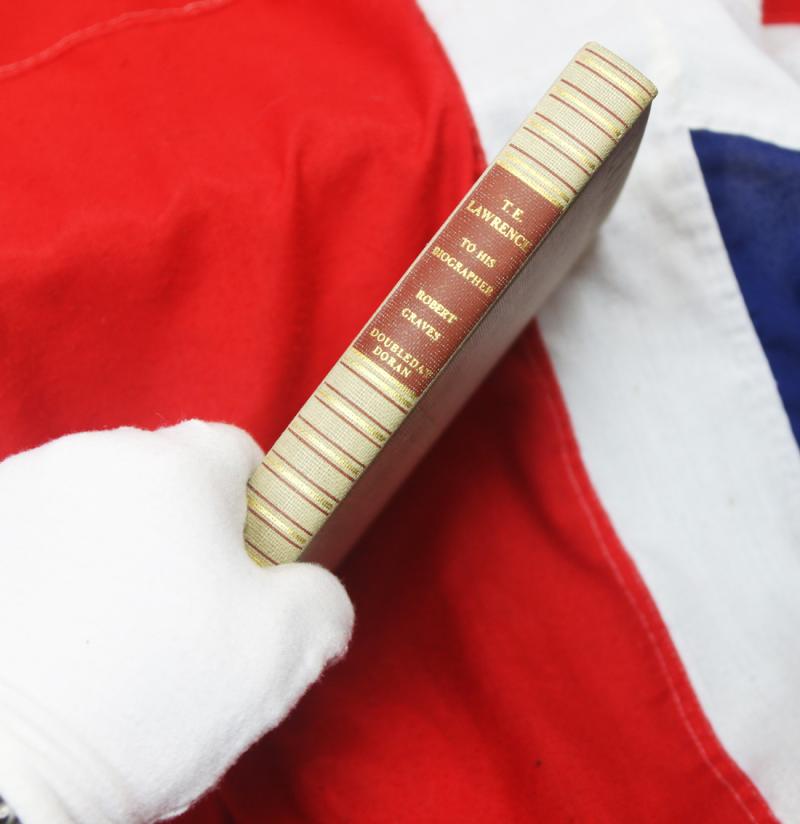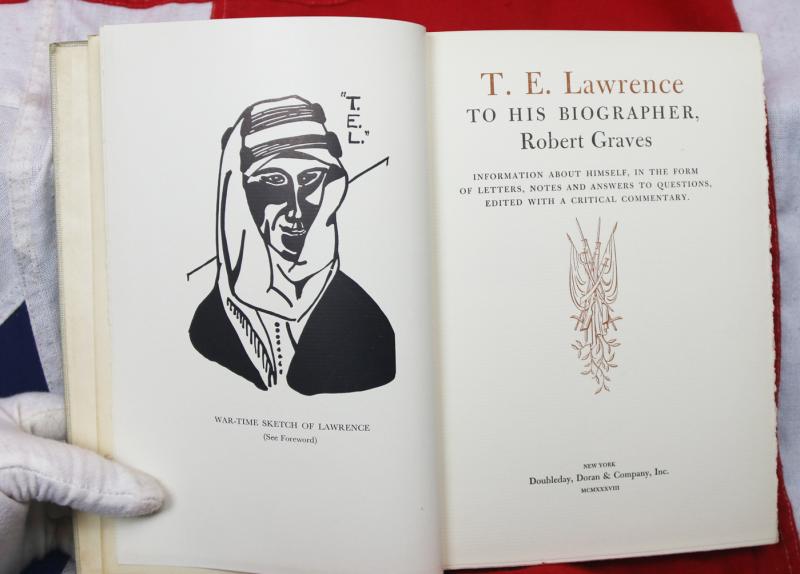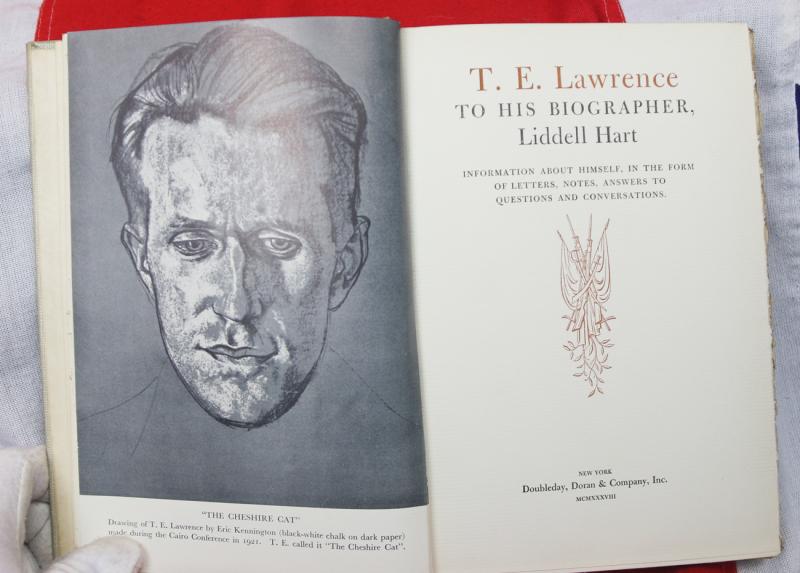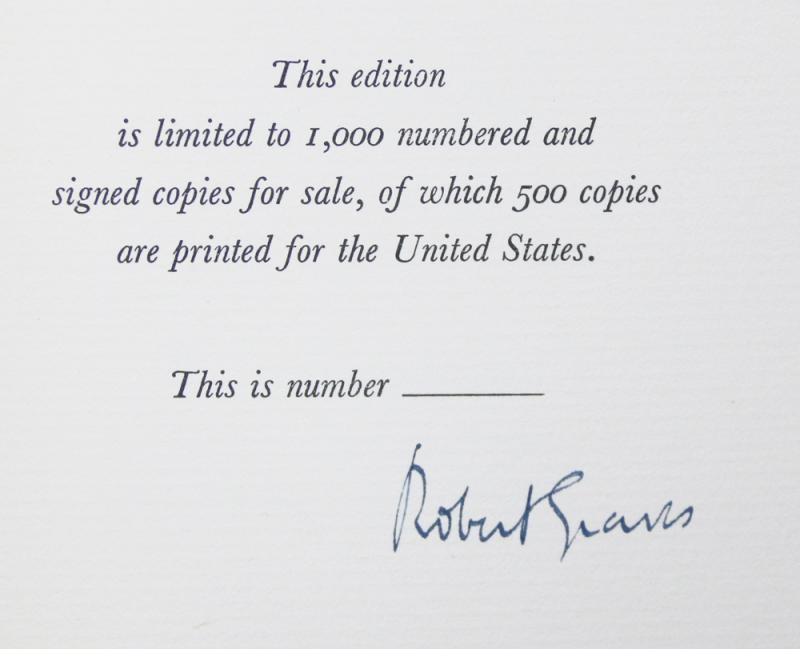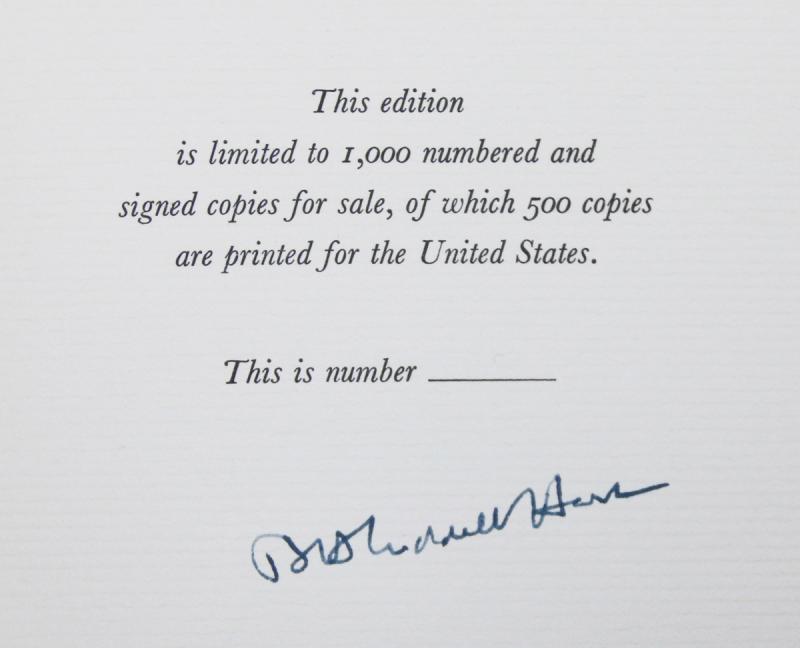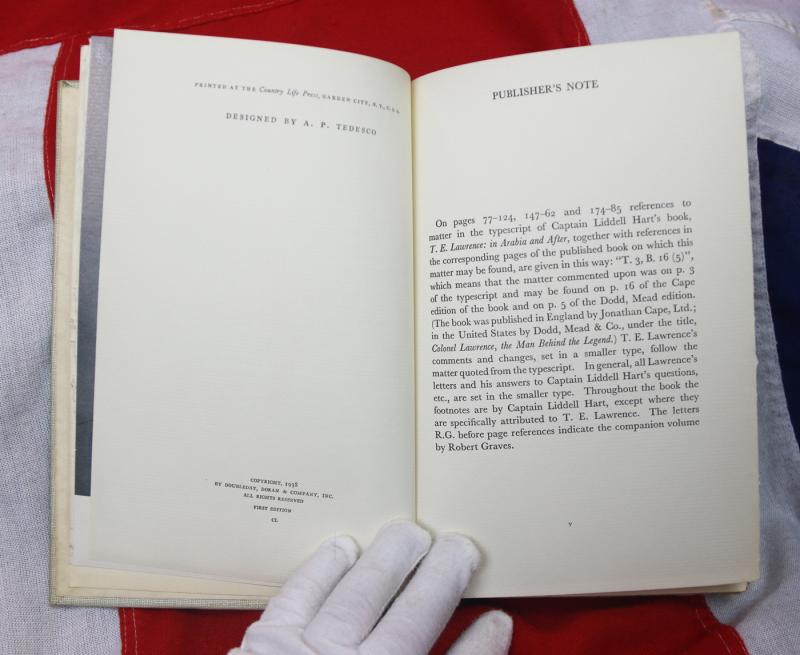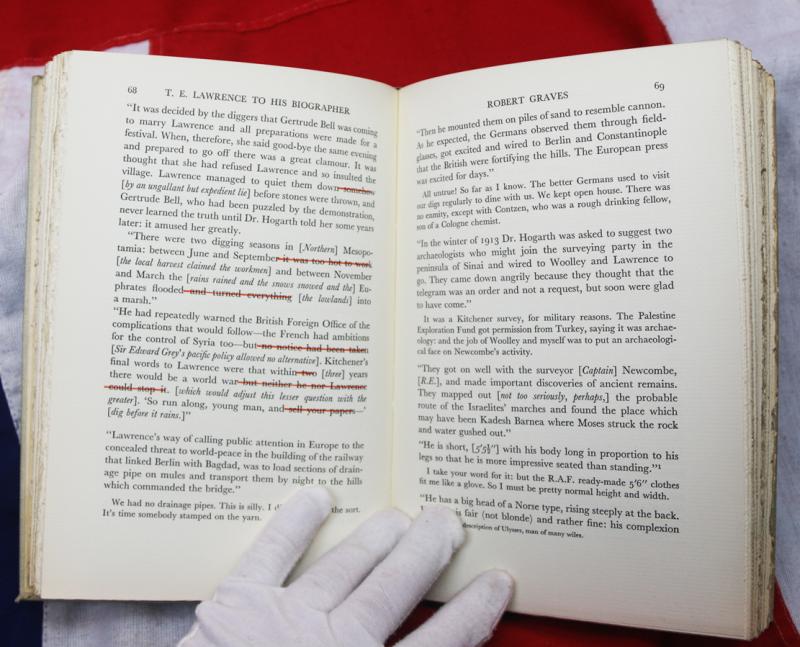T.E.Lawrence. Two Signed, Special US Editions, Published in 1938, Published in America. Lawrence, T.E - To His Biographer Robert Graves & To His Biographer Liddell Hart
Lawrence, T.E - To His Biographer Robert Graves; To His biographer Liddell Hart, 1938, in 2 vols, original buckram hardcover bindings, each 1 of 500 US copies, signed by Graves and Liddell Hart respectively, frontispieces, t.e.g., some leaves uncut, Doubleday, Doran & Company, Inc. New York, 1938. The special signed editions were 1 of 1,000 but 500 for America and 500 for the UK.
Each volume is, most rarely, un-numbered, and some pages remain uncut, on hand made paper, with the signed Robert Graves edition bearing publisher's printed red highlights on some text.
T.E. Lawrence (born August 16, 1888, Tremadoc, Caernarvonshire, Wales—died May 19, 1935, Clouds Hill, Dorset, England) was a British archaeological scholar, military strategist, and author best known for his legendary war activities in the Middle East during World War I and for his account of those activities in The Seven Pillars of Wisdom (1926).
The month the war began, Lawrence became a civilian employee of the Map Department of the War Office in London, charged with preparing a militarily useful map of Sinai. By December 1914 he was a lieutenant in Cairo. Experts on Arab affairs—especially those who had travelled in the Turkish-held Arab lands—were rare, and he was assigned to intelligence, where he spent more than a year, mostly interviewing prisoners, drawing maps, receiving and processing data from agents behind enemy lines, and producing a handbook on the Turkish Army. When in mid-1915 his brothers Will and Frank were killed in action in France, T.E. was reminded cruelly of the more active front in the West. Egypt at the time was the staging area for Middle Eastern military operations of prodigious inefficiency; a trip to Arabia convinced Lawrence of an alternative method of undermining Germany’s Turkish ally. In October 1916 he had accompanied the diplomat Sir Ronald Storrs on a mission to Arabia, where Ḥusayn ibn ʿAlī, amīr of Mecca, had the previous June proclaimed a revolt against the Turks. Storrs and Lawrence consulted with Ḥusayn’s son Abdullah, and Lawrence received permission to go on to consult further with another son, Fayṣal, then commanding an Arab force southwest of Medina.
Lawrence was not the only officer to become involved in the incipient Arab rising, but from his own small corner of the Arabian Peninsula he quickly became—especially from his own accounts—its brains, its organizing force, its liaison with Cairo, and its military technician. His small but irritating second front behind the Turkish lines was a hit-and-run guerrilla operation, focussing upon the mining of bridges and supply trains and the appearance of Arab units first in one place and then another, tying down enemy forces that otherwise would have been deployed elsewhere, and keeping the Damascus-to-Medina railway largely inoperable, with potential Turkish reinforcements thus helpless to crush the uprising. In such fashion Lawrence—“Amīr Dynamite” to the admiring Bedouins—committed the cynical, self-serving shaykhs for the moment to his king-maker’s vision of an Arab nation, goaded them with examples of his own self-punishing personal valour when their spirits flagged, bribed them with promises of enemy booty and English gold sovereigns.
Captain Robert von Ranke Graves (24 July 1895 – 7 December 1985)12 was an English poet, soldier, historical novelist and critic. His father was Alfred Perceval Graves, a celebrated Irish poet and figure in the Gaelic revival; they were both Celticists and students of Irish mythology.
Robert Graves produced more than 140 works in his lifetime. His poems, his translations and innovative analysis of the Greek myths, his memoir of his early life—including his role in World War I—Good-Bye to All That (1929), and his speculative study of poetic inspiration The White Goddess have never been out of print. He is also a renowned short story writer, with stories such as "The Tenement" still being popular today.
He earned his living from writing, particularly popular historical novels such as I, Claudius; King Jesus; The Golden Fleece; and Count Belisarius. He also was a prominent translator of Classical Latin and Ancient Greek texts; his versions of The Twelve Caesars and The Golden Ass remain popular for their clarity and entertaining style. Graves was awarded the 1934 James Tait Black Memorial Prize for both I, Claudius and Claudius the God.
Sir Basil Henry Liddell Hart (31 October 1895 – 29 January 1970), commonly known throughout most of his career as Captain B. H. Liddell Hart, was a British soldier, military historian, and military theorist. He wrote a series of military histories that proved influential among strategists. Arguing that frontal assault was bound to fail at great cost in lives, as proven in World War I, he recommended the "indirect approach" and reliance on fast-moving armoured formations.
His pre-war publications are known to have influenced German World War II strategy, though he was accused of prompting captured generals to exaggerate his part in the development of blitzkrieg tactics. He also helped promote the Rommel myth and the "clean Wehrmacht" argument for political purposes, when the Cold War necessitated the recruitment of a new West German army.
Code: 25196


